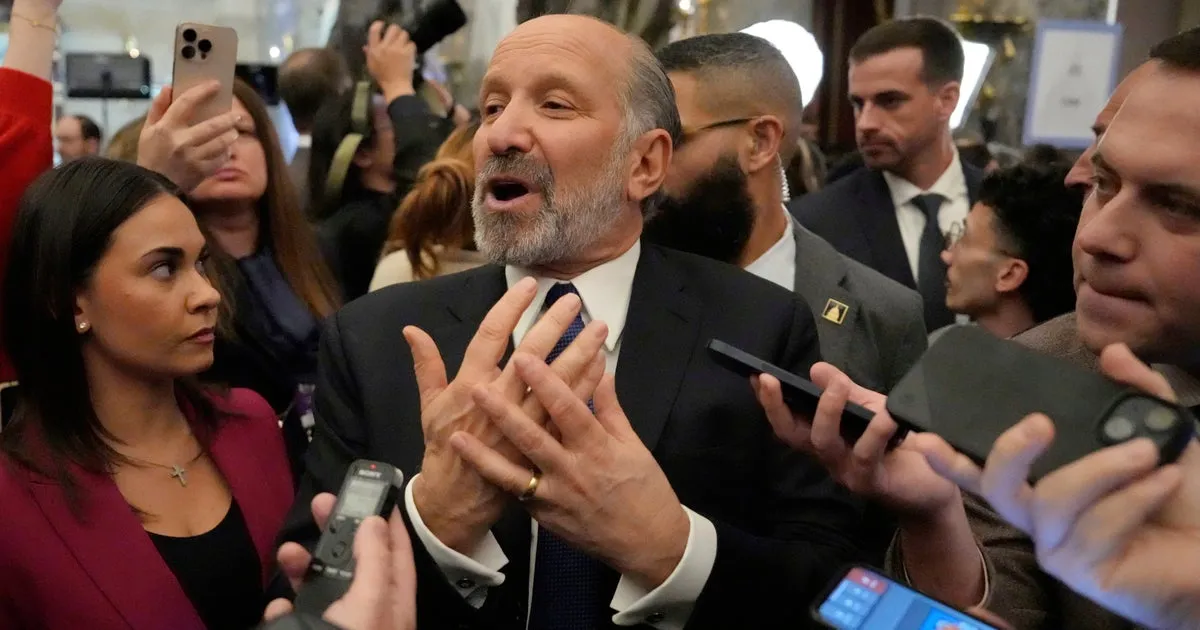
In a significant move amidst rising tensions in international trade, President Donald Trump has announced a one-month exemption on his newly imposed tariffs for U.S. automakers importing from Mexico and Canada. This decision aims to alleviate concerns that the escalating trade war could severely impact domestic manufacturing, particularly in the automotive sector. The announcement follows a conversation Trump had with the leaders of the "big three" automakers—Ford, General Motors, and Stellantis—as confirmed by White House press secretary Karoline Leavitt.
During the discussions, Trump emphasized the importance of U.S. production, advising automakers to take proactive steps. Leavitt stated, “He told them that they should get on it, start investing, start moving, shift production here to the United States of America where they will pay no tariff.” This directive reflects Trump’s longstanding promise to impose tariffs, but his administration's early days have been marked by erratic policy shifts and unclear messaging, leaving both allies and industries uncertain about the administration's objectives.
The recently imposed tariffs on Canada, Mexico, and China are purportedly aimed at addressing various issues, including illegal immigration, the smuggling of fentanyl, and the trade deficit. However, these tariffs have sparked retaliation from Canada, which has vowed to respond with its own set of tariffs. Ontario Premier Doug Ford emphasized, “We are not going to back down. We will not budge. Zero tariffs and that is it.” His comments highlight the potential for significant economic fallout, with warnings that assembly lines in both Canada and the U.S. could face shutdowns within days.
Following the announcement of the one-month exemption, shares of major automakers across the U.S., Asia, and Europe surged, with increases of up to 6%. However, this temporary pause on the 25% tariffs on autos and auto parts under the USMCA trade agreement merely postpones a more significant decision set for April 2, when Trump plans to implement broader "reciprocal" tariffs to align with those imposed by other countries.
Ford issued a statement expressing its commitment to ongoing dialogue with the Trump administration to ensure a prosperous future for the American automotive industry. Similarly, GM and Stellantis thanked Trump for the exemption, underscoring their support for his agenda aimed at strengthening the U.S. automotive sector.
The White House has faced mounting pressure as various industries seek exemptions from the import taxes. Vice President JD Vance confirmed that numerous sectors have reached out for relief from the tariffs. Despite the initial exemption, the White House has consistently maintained that it would not grant further exemptions, indicating a shift in strategy driven by the economic and political ramifications of these tariffs.
Critics argue that while Trump views these tariffs as a means to enrich the U.S. economy, they risk alienating long-standing allies and raising concerns about slower economic growth and rising inflation. In a recent call with Canadian Prime Minister Justin Trudeau, the two leaders discussed the ongoing tensions, but Trudeau remained firm, refusing to lift Canada’s retaliatory tariffs unless Trump rescinds his new import taxes.
The potential for a trade war looms large as Trump considers additional tariffs on imports from countries like the European Union, India, Brazil, South Korea, and others. His administration has also closed exemptions on previous tariffs on steel and aluminum and is currently investigating tariffs on copper. These tariffs are ultimately taxes paid by importers, which could lead to increased costs for U.S. consumers and businesses.
In a recent address to Congress, Trump downplayed the potential economic disruptions as a “little disturbance,” urging Americans to be patient as the administration works toward long-term benefits from these trade policies. He posited that these tariffs would stimulate domestic investment, leading to job creation and economic growth.
As the situation continues to evolve, both Canada and Mexico are preparing to announce countermeasures, further complicating an already delicate trade landscape. With China also responding by imposing tariffs on U.S. agricultural exports, the stakes of this trade war are higher than ever, signaling a turbulent road ahead for international relations and domestic industries.